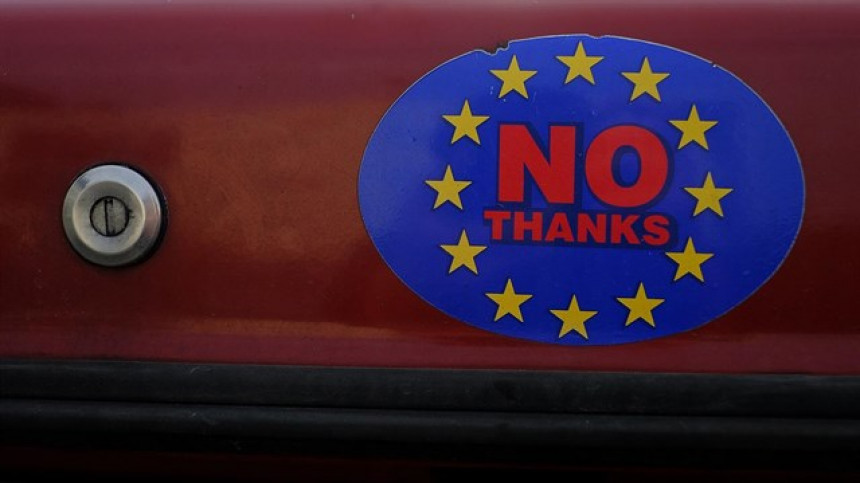
In my opinion, Britain had the best of all possible deals with the European Union, being a member of the common market without belonging to the Euro and having secured a number of other opt-outs from EU rules. And yet that was not enough to stop the United Kingdom's electorate from voting to leave. Why?
The answer could be seen in opinion polls in the months leading up to the "Brexit" referendum. The European migration crisis and the Brexit debate mutually fed on each other. The "Leave" campaign exploited the deteriorating refugee situation -symbolized by frightening images of thousands of asylum-seekers concentrating in Calais, desperate to enter Britain by any means available- to stoke fear of "uncontrolled" immigration from other EU member states. And the European authorities delayed important decisions on refugee policy to avoid a negative effect on the British referendum vote, thereby perpetuating scenes of chaos like the one in Calais.
German Chancellor Angela Merkel's decision to open her country's doors wide to refugees was an inspiring gesture, but it was not properly thought out, because it ignored the pull factor. A sudden influx of asylum-seekers disrupted people in their everyday lives across the EU.
Moreover, the lack of adequate controls created panic, affecting everyone: the local population, the authorities in charge of public safety, and the refugees themselves. It has also paved the way for the rapid rise of xenophobic anti-European parties -such as the UK Independence Party, which spearheaded the Leave campaign- given that national governments and European institutions seemed incapable of handling the crisis.
Referrals for Europe can be much worse
Now, the catastrophic scenario that many had feared has materialized, making the disintegration of the EU practically irreversible. Britain eventually may or may not be relatively better-off than other countries by leaving the EU, but its people and economy stand to suffer significantly in the short-to-medium term. The pound plunged to its lowest level in more than three decades immediately after the vote, and financial markets worldwide are likely to remain in turmoil as the long, complicated process of political and economic divorce from the EU is negotiated. The consequences for the real economy will be comparable only to the financial crisis of 2007-2008.







